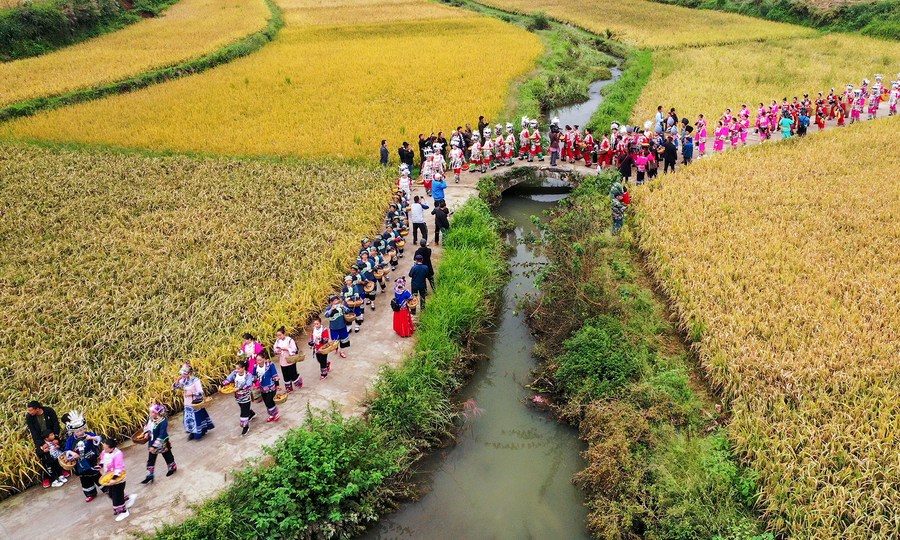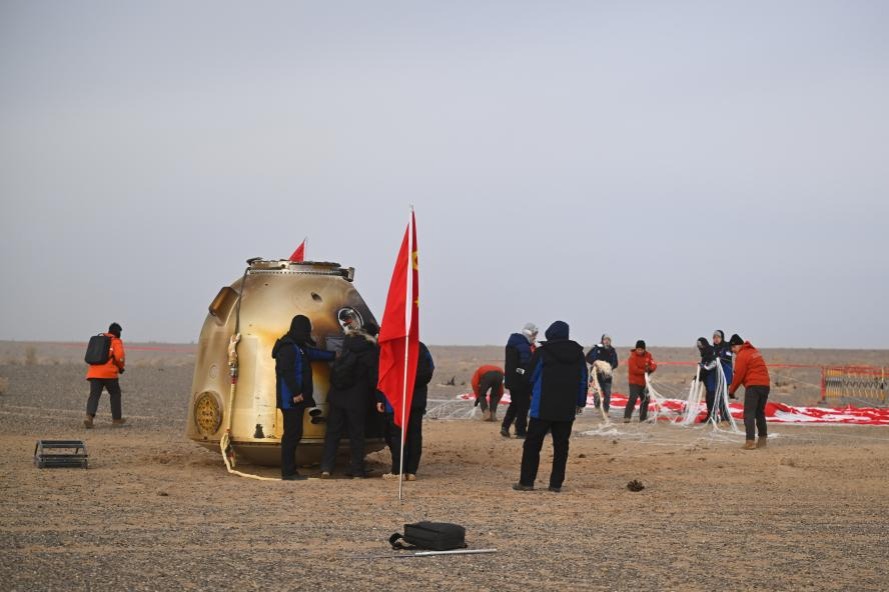The rural road out of crushing poverty


Business booming
Zhang's business has four permanent employees and 20 part-time staff members he can call on during busy periods. He expects to earn 200,000 yuan ($30,982) in profit this year.
"I cannot be selfish," he said. "I've managed to hold my ground in urban areas and I wish to help more settlers emulate what I have done."
Yang Shengqin moved to a settlement complex in the city's Wanshan district two years ago. She now runs a small factory producing handmade rice noodles, a local specialty, which brings in more than 1,000 yuan a day. Her business blossomed as eateries prospered after the COVID-19 outbreak was brought under control last year.
However, when she first arrived in the district few knew about her noodle-making business. Neighborhood authorities weighed in, helping her forge connections with restaurants in downtown Tongren to bolster sales. Some officials even worked as delivery people to win over customers.
"We have formed partnerships with five restaurants, with each buying about 100 kilograms of rice noodles a day," she said.
"Welfare jobs" have also been rolled out to aid the likes of Wu Gang, a hardworking migrant worker who turned to scavenging seven years ago after the death of his 6-year-old son, which had a deep psychological impact on his wife.
Wu, who moved to a resettlement complex in Yanhe county, Guizhou, two years ago, was spotted by neighborhood authorities.
With a wife and two children to support, he was given a job as the head of his apartment unit responsible for organizing community events and security. His wife was hired as a cleaner in the residential compound.
"After enjoying the benefits of many policies, I need to make myself useful," he said.
The isolation of the Yunnan-Guizhou Plateau makes it costly to provide electricity, education and other public services to remote, sparsely populated villages, fueling poverty in Guizhou.
As China increased its rural poverty-alleviation efforts in recent years, Guizhou embraced mass relocation programs to bolster needy farmers' access to healthcare, safe homes, schools and safe drinking water.
More than 465,000 apartments in 949 resettlement complexes have been given to about 1.9 million farmers over the past five years; 1.6 million of them were classified as impoverished based on the country's official definition of poverty. More than 98 percent of settlers said they were content with their new homes, provincial government data showed.
Hundreds of hospitals and schools were either built or upgraded to cope with the surging demand from newcomers, and neighborhood authorities were created to help solve difficulties facing needy families, the government said.
As of November, 884,400 settlers had found jobs through various channels, including "poverty relief factories" set up by authorities to help impoverished farmers. The employment rate among settlers in Guizhou is more than 90 percent, the government said.
Relocation programs were also adopted on a large scale in Yunnan and Gansu provinces and the Ningxia Hui, Guangxi Zhuang and Tibet autonomous regions.























